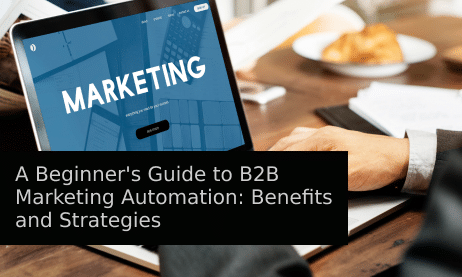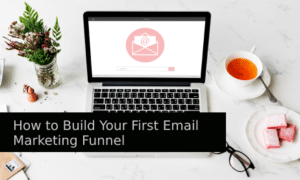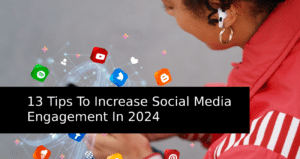As a B2B business, you’ll no doubt recognize just how important marketing is in the world of B2B. Without an effective marketing team, you just won’t be able to generate and convert the leads that you need in order to be successful.
However, creating effective campaigns that are also cost-effective can be difficult. This is especially true in a world that’s increasingly embracing personalized marketing. That’s why B2B marketing automation is so important. By automating many of the processes involved in B2B marketing, you can improve your marketing output easily and efficiently. Read on to find out more.
What is B2B marketing automation?

Screenshot taken from ebq.com
B2B marketing automation is all about reducing the time spent on the most simplistic marketing processes by outsourcing those tasks to digital software. Automation has already effectively transformed a range of industries, from application portfolio management to manufacturing. B2B marketing is the next sector that can benefit from automation.
In practice, B2B marketing automation can take a variety of forms. You might use automation to collect and analyze customer data, which would otherwise be an expensive and time-consuming task, allowing you to focus on producing better marketing materials.
Alternatively, you could use it to automate some of the workflows involved in implementing marketing campaigns, such as sending email marketing messages to target customers. Ultimately, B2B marketing automation is a way of automating some of the most dull recurring tasks in B2B marketing, therefore improving cost-efficiency and boosting your output.
Benefits of B2B marketing automation
Now that you know the basics of B2B marketing automation, it’s time to consider some of the biggest benefits of using automation in your B2B marketing processes:
Improves productivity by automating repetitive tasks
If you’re a marketer in a B2B company, you’re a highly skilled asset. This means that if you’re forced to spend your time completing simple and repetitive tasks—such as data input—you’re not allocating your skills effectively. Automation is a great way to take these tasks off your plate, improving your team’s productivity as you focus on more complex and creative problems.
Enhances lead management across the sales funnel

Screenshot taken from revenuemarketingalliance.com
In the world of B2B marketing, the sales funnel is a crucial way of thinking about the journey from a prospective customer to a purchasing customer. If you want your marketing team to be effective, you need to have a clear strategy for enhancing lead management right through this process.
Marketing automation helps you to nurture leads across the sales funnel. You could create automated drip marketing campaigns, for instance, that will let your prospective customers retain interest without you having to manually remember to send out marketing materials for each prospective customer.
Increases conversion rates and shortens sales cycles
Marketing automation also has a direct impact on conversion rates, which should be the overall aim of any B2B marketing team. By increasing efficiency across your workflow, automation allows you to improve your campaigns, personalization, and strategies so that they’re as likely to lead to a conversion as possible.
It also helps to shorten sales cycles. This is because automation software can send emails or calls according to certain triggers, such as signing up on your website. This accelerates the whole sales process as you don’t have to wait until you’re free to manually send out marketing materials.
Better alignment between sales and marketing
It’s obvious that sales teams and marketing teams need to work collaboratively in order to work effectively. Many automation tools can be used across both sales and marketing, allowing both teams to share insights into customers on the same platform. You can also use the same insights from automated data analysis to ensure that you’re both on the same page.
Provides data and insights for campaign optimization
One of the most popular uses of automation in B2B marketing is in data analytics. Automation tools can be used to create customer profiles using a range of detailed data, allowing you to better test and evaluate your campaigns before launching them to the public.
You can also use automation to automatically track KPIs (key performance indicators). This will allow you to easily measure how effective each campaign is and optimize your efforts in the future.
Scales marketing efforts without needing more resources
Marketing expenses can be a costly drain on small B2B companies. Automation is a great way to free up your teams so that they can focus on scaling up your marketing efforts, with the automated tools taking up the most simple but time-consuming tasks. This will mean that you can scale your company without needing to increase costs.
Key strategies for B2B marketing automation
The benefits of B2B marketing automation are obvious. But how can you generate these benefits in your organization? Here are our key strategies for implementing automation in your B2B marketing workflow:
Identify clear goals for your marketing automation efforts
As with any significant change in your business processes, you should start by identifying clear goals for your marketing automation efforts. Think about what you want to achieve in the short term and long term. You’ll also need to consider your enterprise architecture EA so that you know the full range of your organization’s business and IT capacity.
This will allow you to develop realistic but ambitious goals, meaning that everyone on your team knows what they’re working toward as they adopt automation. It will also mean that you can assess how successful you’ve been by evaluating whether or not you’ve reached those targets.
Utilize segmentation for personalized content delivery

Screenshot taken from userpilot.com
Segmentation—the grouping together of leads and clients based on their characteristics—
is made much easier through marketing automation. Data can be quickly analyzed using software, allowing you to automatically categorize your prospects. This means that you can easily improve your email marketing campaigns, as you can tailor your materials according to clients’ data.
Develop a lead scoring system to prioritize promising leads
Not all leads are created equal in the world of B2B marketing, and knowing which leads to prioritize is crucial. Automation can be used to quickly give each lead points according to criteria that you set up, allowing you to order incoming leads according to how promising they are.
Implement email workflows at each stage of the customer journey
We all know that regular email messages throughout the customer journey are an essential ingredient of successful B2B marketing. However, doing this manually can be difficult and incredibly time-consuming.
Instead, you can use automated marketing software to send these emails when a user hits a trigger, which represents each stage of the customer journey. This means that you can stay in touch with prospective leads easily while also focusing on designing more content marketing rather than tracking when to send those emails.
Integrate with CRM to ensure seamless data exchange

Screenshot taken from sydle.com
CRM tools are a critical part of any marketing or sales architecture. You might think that CRM should only be used by sales teams—however, integrating your marketing automation efforts with your organization’s CRM tool will mean that information about your customers is seamlessly transitioned into the CRM software.
It will also benefit your marketing team to ensure that sales and marketing are both integrated into the CRM. This is because the marketing team needs to consider how they market to existing customers, and they can do this more effectively with access to the CRM.
Use drip campaigns to deliver content series
Drip campaigns are a great tool for marketers, allowing you to deliver well-designed content over a long period of time. This means that they have a greater impact on your prospective customers. Automation is a great way to use drip campaigns, as it will automatically schedule and send this content.
Set up automated actions based on specific user behaviors
Automation can also be used to react to clearly defined user behaviors. By setting up triggers—such as a customer placing a product in their basket—you can automatically send out reminders to complete the purchase.
Regularly monitor key metrics to ensure effectiveness

Screenshot taken from firstpagesage.com
These practical strategies are all great ways to use B2B marketing automation to improve your organization’s marketing efforts. However, you won’t know just how effective they have been if you don’t regularly monitor key metrics to measure your success.
These metrics should be based on the goals that you outlined at the start of the project, meaning that they’re specific and tailored to your company’s specific context. Analyzing these metrics will let you know what to continue with and which methods you can scale up for even more success.
Conclusion
The best B2B marketing departments are on the cutting edge of automation technology. With benefits as wide-ranging as rapidly improving productivity and ensuring stronger alignment between sales and marketing, there’s no reason not to use automation in your organization.
That’s why we put together some of our key strategies that you can use to incorporate automation into your B2B workflow. You’ll soon find that automated drip campaigns and client segmentation should be essential parts of any B2B marketing campaign—so be sure to stay on top of automation in your B2B marketing team to ensure success.




